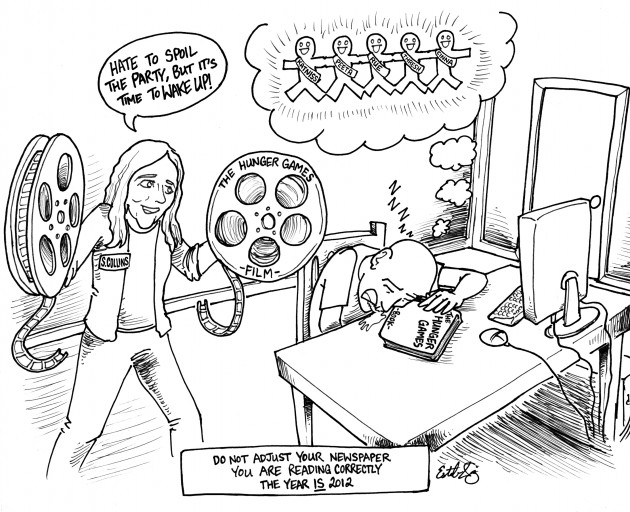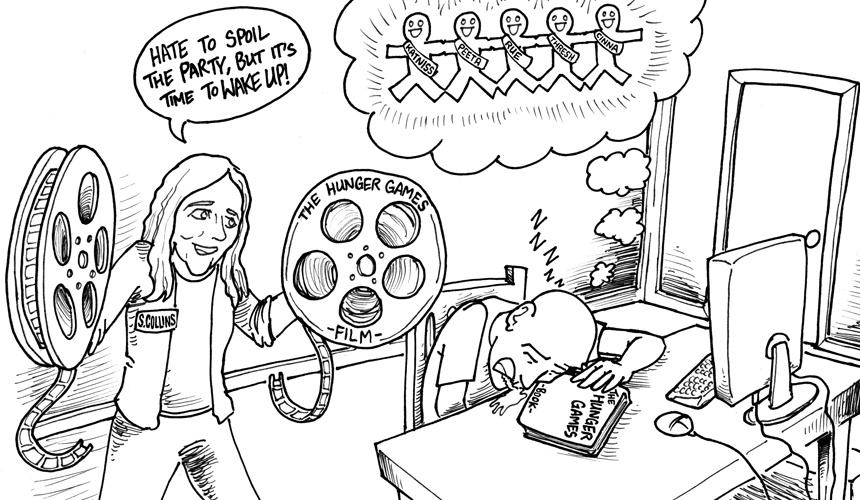
Often, movie adaptations of books result in disgruntled fans — those who know every detail and want nothing left out, nothing changed, in order to preserve the whole, exact story in its transition to the silver screen.
But when Suzanne Collins’ “The Hunger Games” debuted March 23, it was actually a consistency with the text that upset some viewers.
The Hunger Games for which the book is named are put on by the Capitol of Panem, a fictional version of North America made up of 12 Districts. They are a competition in which 24 “tributes” from the 12 Districts must fight to the death as a reminder that their respective Districts must never again try to overthrow the Capitol, as happened once in their history.
One beloved character forced to fight for her life in these dreaded annual “Games” is Rue. She’s a sweet and swift, clever 12-year-old who becomes close friends with main character Katniss Everdeen.
She’s small and slight, with “dark brown skin and eyes.” A character beautiful in both demeanor and looks.
But her race seems to have come as a surprise to some moviegoers, who turned to Twitter to voice their frustrations and make racist comments, some unaware that the character they had previously loved had, in fact, always been dark skinned.
One Twitter user tweeted “why is Rue a little black girl? #sticktothebookDUDE @TheHungerGames,” while another said Rue’s skin color made her death less painful to watch.
“Kk call me racist but when I found out rue was black her death wasn’t as sad #ihatemyself,” the user tweeted.
There has been retaliation from other Twitter-ers who recognize the tweets for the disgusting, racist remarks they are. And some of the Twitter accounts that sent out the tweets have been suspended or no longer exist.
But their words remain, trapped in screenshots and discussed around the nation. Their words speak in contrast to the progress our country is supposed to have made.
We are a country that has overcome slavery, recognized African-Americans like Harriet Tubman and Rosa Parks for the heroes they are and elected an African-American president. We have decided as a nation that all men truly are created equal.
And yet, among us, there are those who can read about a character and fall in love with her for who she is, and automatically hate her when they see her personified in an African-American body.
There are those who cannot see a black child murdered and a white child murdered and react with the same emotion in both instances. In their eyes, those two equally valuable lives are disparate, weighted unevenly simply because of race.
“The Hunger Games” has inadvertently spotlighted a pervasive issue in American society, and it’s important we take that seriously. In some ways, our nation may be on the right track toward ending racism, and we have undoubtedly made some progress.
But the problem is clearly not solved when the color of a fictional character’s skin can bring forth such inhuman and hateful remarks.
In the face of such a problem, and in light of the comments brought forth by Rue’s skin color, one of the worst things we could do would be to ignore the controversy, and thereby ignore the larger issue. Minds can’t be changed and prejudices can’t be overcome unless there is discussion.
We should be discussing these comments and the larger problems they evidence in our circles of friends, with our families, in churches and in classrooms. The topic of racism is not one to hide from, but rather one to tackle valiantly, and the “Hunger Games” controversy gives us the perfect opening to do just that — to start conversations, to try to change minds.






